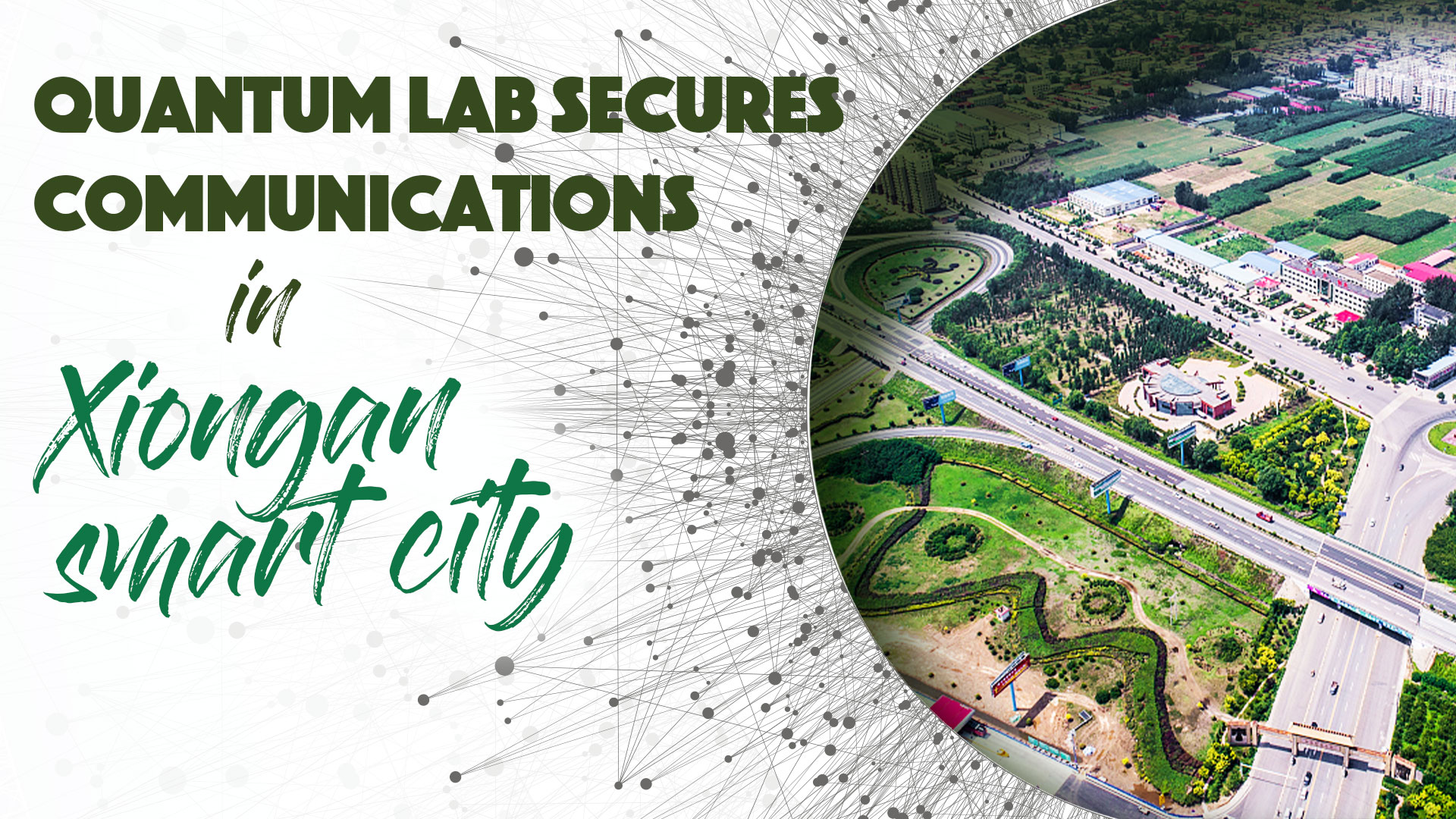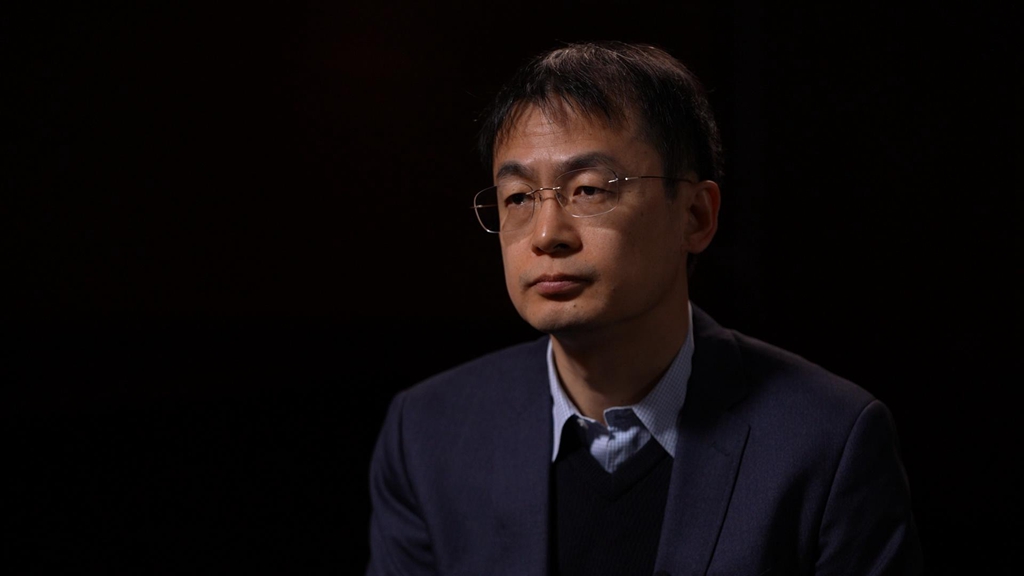03:36

The development of quantum technology has been a key focus of China in recent years. Characterized by its no-cloning theorem and uncertainty, the technology plays an important role in ensuring network information security.
On April 1, Xiongan New Area in north China's Hebei Province, which has been designed to become a smart city, celebrated its fifth anniversary since establishment.
CGTN sat down with Wang Ti, director of Quantum Communication Technology and Application Research Laboratory (Application Demonstration Center) of Xiongan, and CTO of China Unicom Smart City Research Institute, talking about how quantum technology can ensure communication safety in the city and the rest of China.

Wang Ti, director of Quantum Communication Technology and Application Research Laboratory (Application Demonstration Center) of Xiongan, at an interview with CGTN, Beijing, March 30, 2022. /CGTN
Wang Ti, director of Quantum Communication Technology and Application Research Laboratory (Application Demonstration Center) of Xiongan, at an interview with CGTN, Beijing, March 30, 2022. /CGTN
Edited for clarity and brevity, here are some excerpts from the interview with Wang.
CGTN: Quantum technology is a fairly abstract concept. Can you explain what it is and how we can use it?
Wang: The reason people are having a hard time understanding quantum technology is because "quantum" describes the micro-world. It's characterized by its no-cloning theorem and especially by its uncertainty. In our macro-world, most things are fixed and certain. Quantum research has been developing rapidly in recent years, and has derived three fields of application: quantum computing, quantum communication and quantum measurement.
CGTN: The quantum lab in the Xiongan New Area focuses on quantum communication research. What are the features of this field?
Wang: The most significant feature of quantum communication is confidentiality. We proposed a plan for a smart city that combines cyberspace and physical space with quantum security to promote quantum secure communication. Following this route, we developed and deployed a quantum key cloud platform to expand the cloud service of quantum cryptography, and to provide a solution for smart city application scenarios with real security.
CGTN: What are the application scenarios for quantum communication?
Wang: Quantum communication has a wide range of application scenarios. The most commonly used one is quantum cryptography. It can be used in every subdivision of communication. For example, we used video calls a lot during the epidemic. Some virtual government meetings or individuals require confidentiality. If the call is quantum-encrypted, there will be two scenarios when it's monitored. First, the meeting will break off, allowing both sides to notice, and second, even if the information is intercepted, it can't be cracked.
CGTN: What are the current and future application plans of quantum communication in the Xiongan New Area?
Wang: Based on the existing foundation of Xiongan, we first built a quantum key cloud platform, and on top of that, we developed applications like encryption of voice calls and control information of UAVs. In the future, we will add quantum cryptography to the applications of driver less vehicles and inter phones. In the same way as when we first exploring 5G plus and internet plus, we need to go through the adapting and probing process with each vertical industry. We also hope to promote some of the quantum application achievements in Xiongan to the rest of China. In this way, we can boost the technological innovation in Xiongan, as well as assist the application and industrialization of quantum communication in China.
Videographer: Yu Yang
Video editor: Zhang Rongyi
Cover image: Xing Cheng

